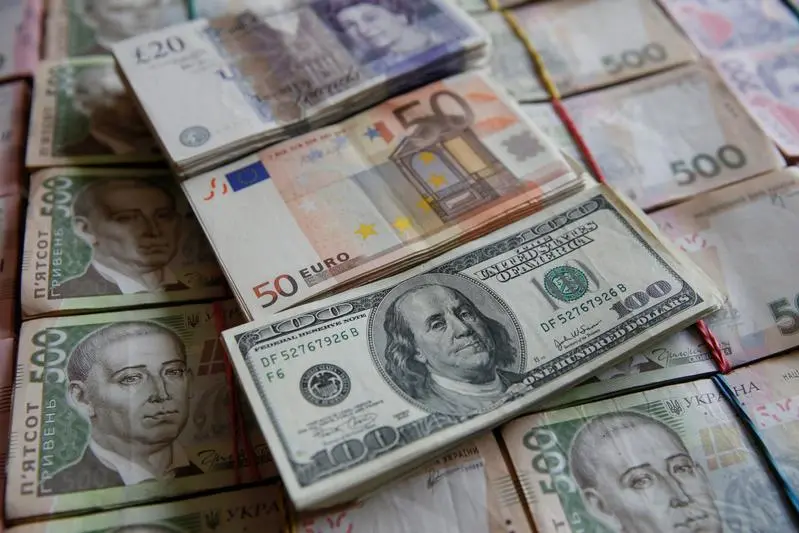PHOTO
LONDON- The dollar was set for a fourth straight month of losses on Monday after a U.S. Federal Reserve policy shift on inflation, while the euro was poised to post a fourth month of gains, taking both currencies to levels last seen in 2018.
Investors are adjusting to a speech last Thursday in which Federal Reserve Chair Jerome Powell outlined an accommodative policy change which is believed could result in inflation moving slightly higher and interest rates staying lower for longer.
"Even if U.S. central bankers are likely to be pleased about the interpretation of their measures, it is not good news for the dollar", Commerzbank analysts commented.
"If one expects the domestic purchasing power of the dollar to be eroded more quickly (as that is what inflation is) it is difficult to assume that it will maintain its purchasing power on the FX market in the long run", they argued.
"That is why EUR-USD is trading above 1.19, with the dollar index (DXY) trading below 92.50", they concluded.
Against a basket of currencies the dollar was flat at 92.256 in midday trading in Europe and is down 1.28% for the month.
If sustained that would be its worst August in five years and make for the longest run of monthly losses since the summer of 2017.
The euro was up 0.2% at $1.1929 and on track for a 1.3% monthly gain, which would be its fourth straight month of increases.
With most of London's traders off on a holiday, attention now turns to a handful of Federal Reserve officials due to speak through the week, beginning with Richard Clarida at 1300 GMT Monday, as they put more flesh on the bank's new policy framework.
Eurozone inflation data on Tuesday and U.S. payrolls on Friday will also be closely watched.
The British pound, currently trading around eight-month highs, eased 0.23% at $1.3345.
"The British currency is back on the retreat today, which likely reflects some reports that the UK Treasury is preparing significant tax hikes to plug the massive hole that the pandemic has left on public finances", said Marios Hadjikyriacos, an analyst at XM.
"That is not what investors want to hear in the middle of a recession, as raising taxes implies a slower recovery", he added, arguing that "if this emerges as the next theme for the pound, the recent rally would be at risk".
Earlier the yen steadied on the view that Japan's next leader will stay the course on the 'Abenomics' economic revival programme.
The yen eased by about 0.5% to 105.91 per dollar, having climbed as far as 104.195 on Friday in the wake of Shinzo Abe's resignation as prime minister for health reasons.
Elsewhere trade was choppy as the boost to Asian currencies from a solid expansion in China's service sector had begun to fade a bit.
China's yuan hit a 14-month peak of 6.844 to the dollar in offshore trade as investors cheer the services growth rather than fretting about a stalled rebound in manufacturing.
(Reporting by Julien Ponthus, Editing by William Maclean and Chizu Nomiyama) ((tom.westbrook@tr.com; +65 6318 4876;))





















